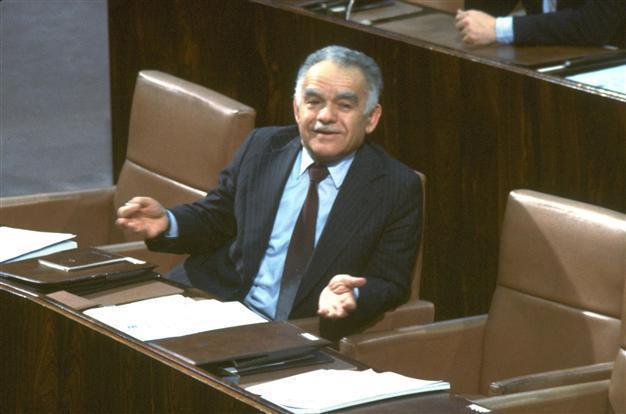Israel's Shamir to lie in state before burial
JERUSALEM - Agence France-Presse

Israel's Prime Minister Yitzhak Shamir attends a non-confidence vote at the Knesset, the Israeli parliament, in Jerusalem in this March 22, 1984 handout photo obtained by Reuters from the Israeli Government Press Office (GPO) on July 1, 2012. REUTERS photo
The body of Israel's former prime minister Yitzhak Shamir, who died on Saturday aged 96, will lie in state at the country's parliament before his burial on Monday, a Knesset spokesman said on Sunday."The coffin will be put in the Knesset where the public can come to pay final tribute before his burial," parliamentary spokesman Yotam Yakir told AFP.
Shamir is expected to be buried on Monday at the Mount Herzl cemetery, where Israel's leading political and military figures are laid to rest.
Shamir was Israel's prime minister from 1983 to 1984 and then from 1986 to 1992, also serving terms as president of the Knesset and foreign minister.
He retired from political life in 1996 and in his later years suffered from Alzheimer's, living in a retirement home north of Tel Aviv until his death.
Tributes from Israel's political class and around the world poured in after his death, and on Sunday Israeli media offered their own commemorations of the former leader.
They hailed him as an "iron man," a stubborn backer of the notion of "greater Israel," who opposed even the slightest territorial concessions to the Palestinians in the West Bank, Gaza or east Jerusalem.
And commentators said he had displayed pragmatism, pointing to his oft-cited decision to refrain from responding militarily to the dozens of Scud missiles fired at Israel by Iraq during the first Gulf War in 1991.
But Shamir's defence minister at the time, Moshe Arens, revealed on Sunday for the first time that the Israeli leader had planned a counter-attack on Iraq but was prevented at the last minute when Washington declared a ceasefire.
"At the beginning of the war we couldn't launch an attack without coordination with the Americans, but with the continued missile fire, Yitzhak Shamir sent me to Washington to announce that we would take action," Arens told public radio.
"But it was exactly at that moment that the American president announced a ceasefire," he said.
















